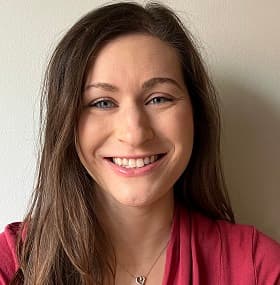
Sam Haberlach fell in love with the homebuying process from the get-go, starting with a “fixer-upper” in Omaha, Neb., in 1997.
“When I was 23 years old, I bought my first house, I got three roommates, and I lived for free while I did ROTC [Reserve Officers' Training Corps],” she says. “Ever since then [real estate has] just been a passion.”
As a member of the Air Force, she could never lay down roots for long. And while that might dissuade some from purchasing a home, that didn’t stop Haberlach, who discovered how to leverage VA loans to grow her investments, eventually owning eight rental properties.
When the time came for the lieutenant colonel to retire after 26 years, real estate helped fill the “sense of service” she was searching for.
Soon after earning her license, she became a certified Military Relocation Professional (MRP) through the National Association of REALTORS®’ Center for REALTOR® Development. The certification course teaches the ins and outs of military relocation, VA financing and considerations while helping service members and veterans rent or buy.
“I really thought that it would help round out my knowledge, because just because I am a veteran and I have used my VA loan multiple times, it doesn't mean that I understand the nuances of helping other veterans in their [unique] situation[s],” Haberlach, now a sales associate at Century 21 Redwood Realty in Fairfax, Va., says.
“For [agents] who are not veterans, 100% they’ve got to do it. If you want to help a veteran and you are not one yourself, please take the class, you’re going to learn so, so much,” she adds.
There are many military bases throughout Haberlach’s region of D.C., Maryland and Virginia, in addition to the Department of Defense headquarters, the Pentagon.
She says it’s important to understand your clients’ needs, like having to relocate every two years.
“You have a husband who's in Bahrain and the wife who's in Seattle, and they want your help to find a home in Virginia—and they've never been here before,” Haberlach says. “That's a magical moment when you can help them find that dream home, that you never forget.”
“Putting ‘MRP®’ at the end of my emails and in my website, I’m hoping that helps people understand that I have taken the time to really study this, in addition to being a veteran myself,” she says.
Those three letters and the knowledge from earning them helped Oakland, Calif., –based broker Tia Hunnicutt land her last client, a sailor who needed to be within a 20-minute drive of his naval base.
“His mom was in Denver and was a [real estate practitioner] and so she was aware of the certification,” Hunnicutt, broker-owner of Proxima Realty, says. “She looked to see who was in the area, saw my name and called me.”
Everyone who completes a certification or designation is added to a directory of professionals with that credential.
Hunnicutt was drawn to NAR’s education programs during the early days of the COVID-19 pandemic. When the world was sheltering in place and slowing down, she had the time to sit and study.
An ad about certifications and designations caught her eye, and she began working toward ones that piqued her interest.
“Upon further inspection, I realized they were really high quality and really interesting,” she says.
Hunnicutt took one after the other and has now earned 10 certifications and designations, from the Accredited Buyer's Representative® (ABR®) designation to the Short Sales and Foreclosure Resource (SFR) certification. “And I love them all equally like children,” she says, laughing.
The Seniors Real Estate Specialist® (SRES®) course, and the designation’s monthly newsletters, gave her a deeper understanding of clients aged 50 and older, while the SFR certification lessons provided a refresher on principles she learned coming into the business during the 2008 housing crisis.
The e-PRO® certification, NAR’s technology and digital marketing course, Hunnicutt says was one of the most difficult, but also one of the “most relevant” and “rewarding.”
“It’s one of those trainings—if you do nothing else, you need to do e-PRO®,” she says. “Everybody who is interacting with clients is interacting with them in a digital space, primarily first ... Additionally, because I am a broker, it's important for me to know how to handle a [data] breach.”
“When I hear about a data breach, I say, ‘Oh I wonder if they have done one, two and three,’ which are the things that I remember from my e-PRO® training,” she says.
While the former actor and real estate investor focuses her marketing on first-time homebuyers, she believes it’s important to be a well-rounded professional because you never know what opportunities each deal will bring.











